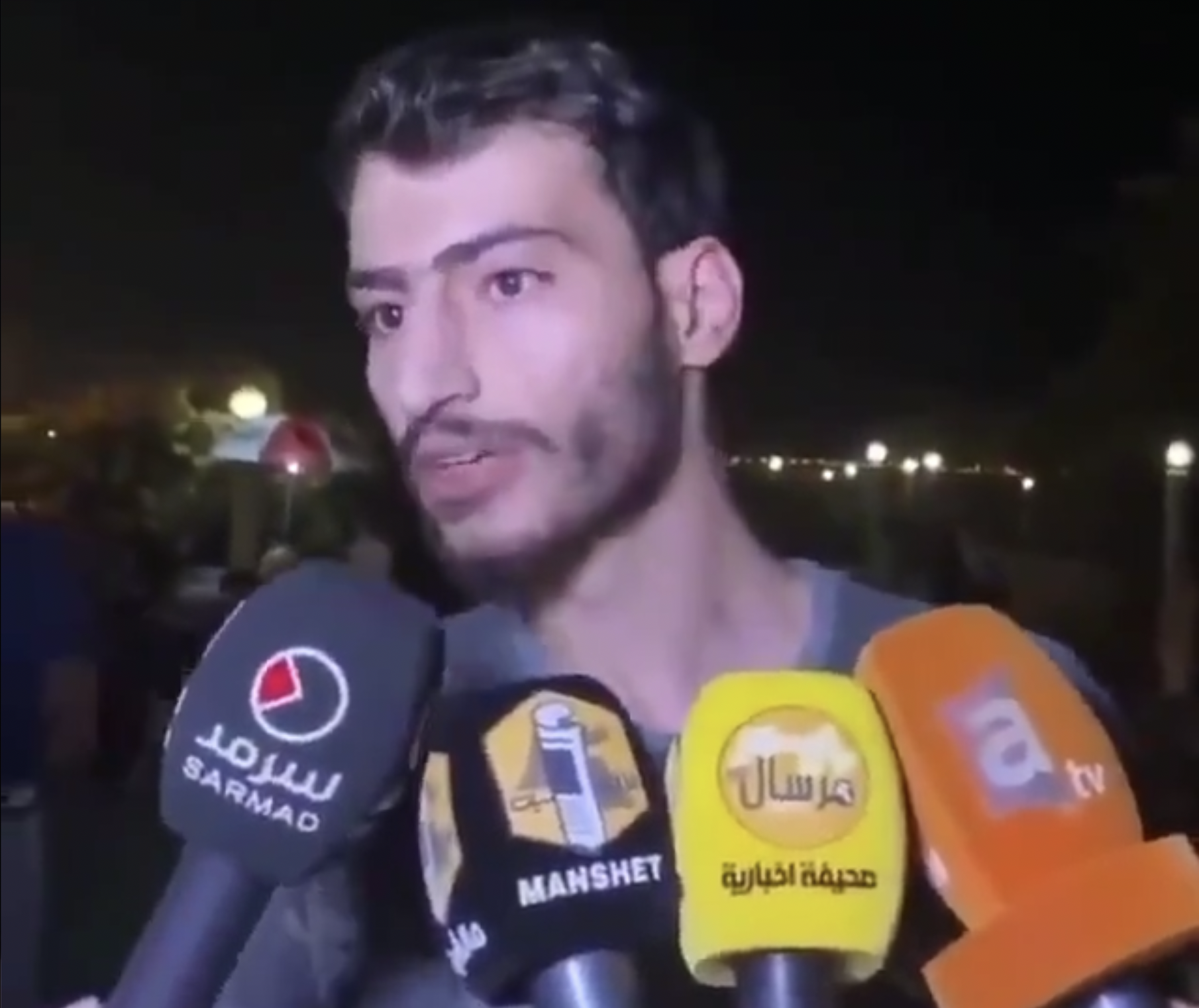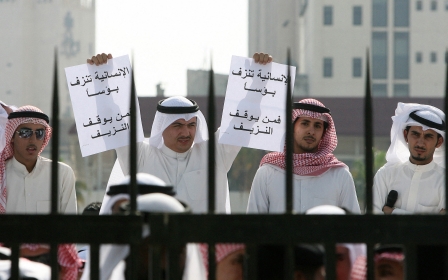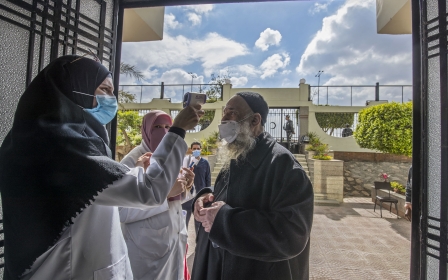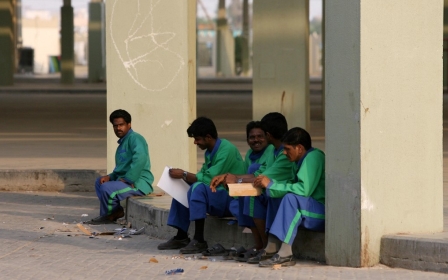Kuwait: Jordanian deported for protesting against Covid-19 regulations

Kuwait has deported a Jordanian national for protesting against new government restrictions on people who have not been vaccinated for Covid-19.
Abdullah Mohammed Jebara, a Kuwaiti-born Jordanian, was reportedly arrested last week at Al-Erada Square in Kuwait City for taking part in protests against new Coronavirus restrictions whereby those who are unvaccinated are barred from entering certain public spaces such as restaurants and shopping centres.
During the protest, Jebara was approached by the media for an interview being broadcast on live TV in which he expressed discontent with the new regulations.
'How can any free person accept that [the government] can control their movements?'
- Abdullah Jebara
“How can any free person accept that [the government] can control their movements?” Jabara said in his interview.
Many expatriates in the country have criticised the alleged inequalities in Kuwait’s vaccine drive as well as the treatment of foreign workers in Gulf countries.
New MEE newsletter: Jerusalem Dispatch
Sign up to get the latest insights and analysis on Israel-Palestine, alongside Turkey Unpacked and other MEE newsletters
Jebara reportedly spent several days in detention before he was deported to Amman, Jordan.
The state-linked Kuwaiti newspaper al-Qabas reported his flight to Amman late on Sunday.
According to Kuwaiti media, security sources said the deportation took place in order to protect the public interest and is an implementation of instructions to deport any expat whose actions harm the public interest, security or public morals.
'No to Abdullah's deportation'
Online, many Kuwaiti’s were dissatisfied with Jebara’s lack of gratitude. Meanwhile, those sympathetic with his case contributed to a media campaign, using the Arabic hashtag, “No to Abdullah’s deportation.”
Translation: Unfortunately, all humanitarian appeals failed and Abdullah, a Jordanian citizen born in Kuwait, and who spent his whole life there [was deported]. His crime is that he dared to express his opinion in front of the TV screen. The hashtag 'no to Abdullah’s deportation' went in vain and the norms of discrimination prevailed among people in our Arab countries.
Translation: What is the sin committed by the young man Abdullah Jabara in order to issue a decision to deport him? He expressed his opinion about the procedures related to Coronavirus and did not interfere with the state’s policy. I am surprised by those who describe his expression of opinion as interference in internal affairs. Differentiate between expressing an opinion and interfering in internal affairs.
Last week, Jebara’s father issued a statement to Kuwaiti media, pleading for his son’s release from detention.
"Abdullah considers Kuwait as a piece of his own heart," he wrote of his son. He claimed that his son had no intention of insulting the country and simply spoke his mind about vaccines when reporters put him on the spot.
'Abdullah considers Kuwait as a piece of his own heart'
- Jebara's father
Last week, a group of Kuwaiti MPs rejected the decision of Interior Minister Sheikh Thamer Ali Al-Sabah to deport Jebara on the grounds that he expressed his objection to regulations.
Nearly 8,000 expats were deported from Kuwait during the first half of 2021. Seven hundred more remain detained in deportation centres, unable to travel home due to airport closures.
The majority of those deported had expired residency permits while others face deportation for their involvement in misdemeanors and felonies.
Middle East Eye delivers independent and unrivalled coverage and analysis of the Middle East, North Africa and beyond. To learn more about republishing this content and the associated fees, please fill out this form. More about MEE can be found here.




